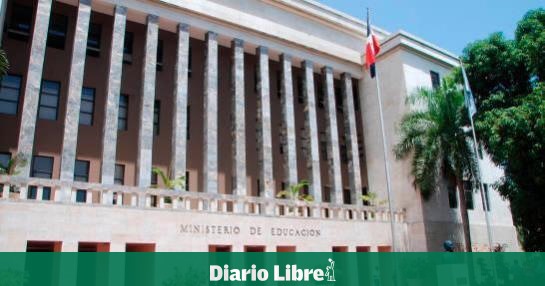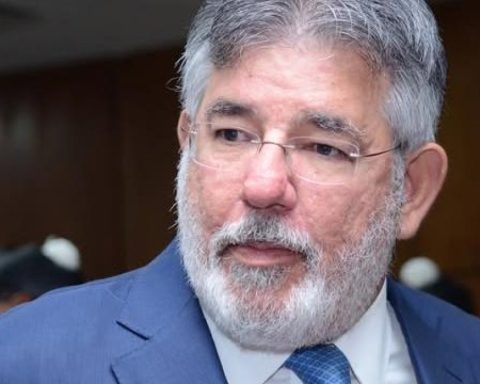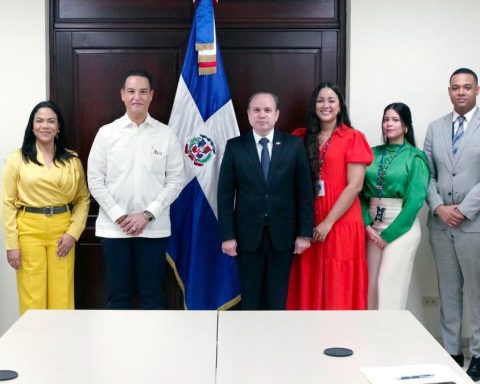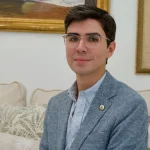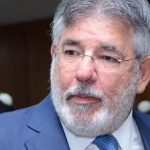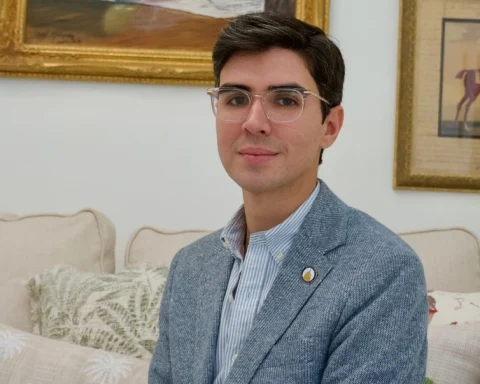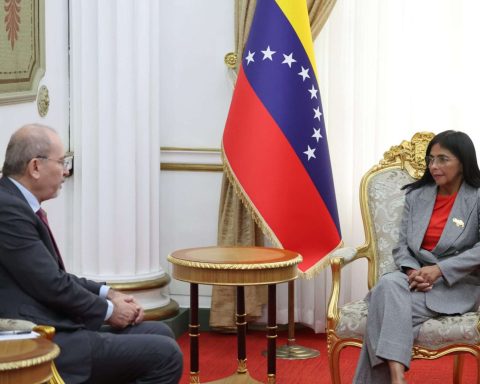The foundations bearing the names of the late political leaders Joaquín Balaguer, Juan Bosch and José Francisco Peña Gómez receive their resources from the budget of the Ministry of Educationan institution that allocates some RD$375 million each year to these entities, without many of them having any link with the Dominican educational system.
Are NGO they have an annual budget of RD$12 million each, which is distributed monthly in RD$1 million, although their activities are not directed at the education sector.
On the website of the Joaquín Balaguer Foundation there is a budget execution report, endorsed by the Chamber of Accounts, which states that of the RD$12 million, RD$5.5 million are allocated to remuneration and contributions; RD$3.5 million for contracting services; RD$1.4 million for materials and supplies; RD$2.2 million to current transfers and RD$300 thousand to movable, immovable and intangible assets.
It has a payroll of 16 employees with salaries ranging from RD$44,400, the salary of the Foundation administrator, to RD$5,800, which is the salary of the gardener of the pantheon (where Balaguer is buried). The total amount of the payroll is RD$246,660.54 and is signed by Joaquín Ricardo and Alfonsina Escalante.
It also has a security payroll of RD$80,500. Five security employees for the pantheon, seven for the Foundation and one for the museum.
It manages a “Student Aid Program” that “offers educational opportunities to children and young people who need it and who have a good academic record. It applies throughout the national territory, thus promoting equal opportunities and academic excellence.”
There is a registration form, but there is no report of the students who benefit from the aid. The last activity reviewed on their social networks is a virtual conference given by Miguel Núñez with the theme “The enduring in Balaguer’s work”.
There are no financial reports or payroll on the Juan Bosch Foundation page. The activities carried out by the entity directed by Matías Bosch are listed, the last ones are dated July 2021.
On the website of the José Francisco Peña Gómez Institute, which in the report of the Ministry of Education It appears under the name of Dr. José Francisco Peña Gómez Technological Education and Training School, which is defined as “a private, non-profit organization that promotes pluralist debate on national and international problems and contributes, through educational activities of high academic level, to a better understanding of Dominican society and the world. One of its main purposes is to serve as a convening and meeting space for Dominicans interested in expanding democracy, citizenship and social equity.”
It does not have an accountability report, but it does have a list of graduates in political management and government management, community leadership, history of political ideas, conflict mediation in democratic institutions, political management and government management, and formulation and management. of social projects.
The last diploma offered is dated January 31, 2022, although it is not posted on its website, it was posted on its Twitter account.
In the General State Budget for 2022, RD$4,793 million were allocated for non-profit Associations, distributed to hundreds of entities of various kinds. This amount has increased each year with the incorporation of new entities to the Budget. Since March 1, the Ministry of Economy, Planning and Development (MEPYD) has been calling for the presentation of requests for budgetary allocation or subsidies for non-profit associations (ASFL), charged to the General State Budget for the year 2023. The grants are for Programs or Projects of Public Benefit or Service to Third Parties. The deadline for submitting applications will end on May 16 of this year 2022, according to a statement posted on the website of the Ministry of Economy.
The light of the Archbishopric
According to the data requested through the Office of Free Access to Information of the Ministry of Education, 164 normal organizations receive resources in the amount of RD$228,325, 468.00; 61 religious organizations with an amount of RD$53,279,100.00; 42 receive occasional aid in the amount of RD$87,366,466.18 and a transfer for non-cuttable electricity to the Archbishopric for a value of RD$6,288,873.82.
The total payment for the electricity service of the Archbishopric was 20 million in 2021, but at the bottom of the report there is a note that states that “the non-cuttable energy of the Archbishopric will no longer be paid by auxiliary 2.4.1.6.02, the The first months were transferred for RD$6,288,873.82., then it began to be paid by the list of occasional RD$14,013,391.18 of the total programmed. By instructions of the Ministry of Energy and Mines and the Ministry of Finance”
NGO without educational ties
Among the organizations that receive resources from Education, there are entities that have no link with the education sector (most of those included in the Minerd budget), and whose activities are directed to areas such as justice, stress management, disaster prevention, rural promotion, citizen training, among others.
Another group of these “non-profit” entities are dedicated to health, youth and sports issues and research, according to their mission.
It should be noted that in a survey carried out by Diario Libre, few of these entities have a web page where their activities and accountability can be found. Some of them have social networks where it is evident that their latest activities date from the year 2021 and others older than 2019.
An example of these NGO they are the Justice and Transparency Foundation with an allocation of RD$1,500,000; the Nikauly Foundation with all my heart, which receives RD$1,780,000; the RD 2030 Foundation with RD$1,700,000; the Center for Prevention and Mitigation of Disasters with RD$1,800,000; Dominican Art of Living Foundation with RD$1,520,000; the Foundation for Political and Social Promotion with RD$4,300,000; Crying to Smile Foundation RD$1,200.00; the Renaissance and Hope Foundation RD$1,800,000: the Las Palmas Community Center with a budget of RD$1,960,000.
